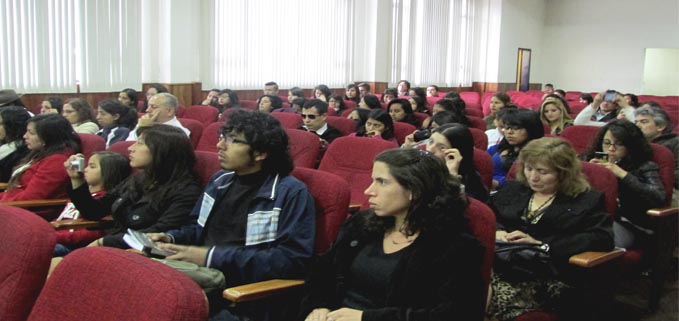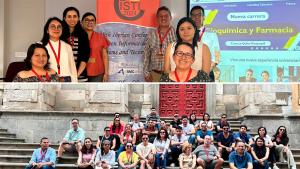Book Launch of "Socialización escolar. Procesos, experiencias y trayectos"
Book Launch of "Socialización escolar. Procesos, experiencias y trayectos"

On June 4th the book "Socialización escolar: procesos, experiencias y trayectos" was presented to the public. The book containing eleven articles on strengthening educational processes was made possible under the coordination of Rene Unda Lara, Liliana Mayer and Daniel Llanos and supported by CINDE, CLASCO, Universidad de Manizales-Colombia, and Abya Yala-UPS publishing house.
The articles were written by researchers from the "Juventudes, Infancias: Políticas, Culturas e Instituciones Sociales" Group which belongs to the Latin American Council of Social Sciences (CLASCO). The book presents results, advances and methodologies to strengthen alternatives of social, political and cultural research based on everyday experiences. This will create a debate between subjectivity, subjective processes, laws, regulations and rights of educational processes.
The comments on the text were made by Dr. Germán Muñoz , from Universidad Distrital Francisco José de Caldas , Colombia ; Freddy Villafuerte , Ecuadorian Deputy Minister of Education and María Sol Villagomez, director of the area of Education in UPS , who gave a brief summary of the articles highlighting the contribution of each one. Then German Munoz criticized cognitive capitalism noting that " publishing is becoming a mechanism used to capture learning and accreditation in a simple formality which aims to ingratiate with control organisms , leaving debate and scientific production in the field of social research behind".
He also stressed that the book highlights issues such as citizenship building, social production , attention to equality and inequality , and other emerging issues ; public and private , socio- cultural diversity , multiculturalism, collective action. He emphasized that the book invites people not only to read article by article, but to "reread it with political emphasis of relations arising in the changing social scene between school and forms of education, including ways of being and acting , forms to reinvent themselves in everyday life in areas that are not necessarily academic , but expanded in areas of education."
Peñafiel talked about the "Millennium Educational" Institutions which according to him respond to a need and a change in education of vulnerable sectors, facilitating learning tools, technology to meet the diverse knowledge through a mediated socialization among members of a community. However, he stressed that to change education, it is not enough to have decrees or the participation of certain people, it is important for the State to play a good role in order to break the paradigm of the current education system.
René Unda , author and coordinator of the book , stressed that education is a central space for socialization and its educational forms are made in classrooms based on competitiveness , individuality, where the student who finishes the classwork first is there is no stimulation for students to help each other . He thanked those who supported the production of this text and invited students to think and rethink the current pedagogical and educational practices.






Follow us
Follow us